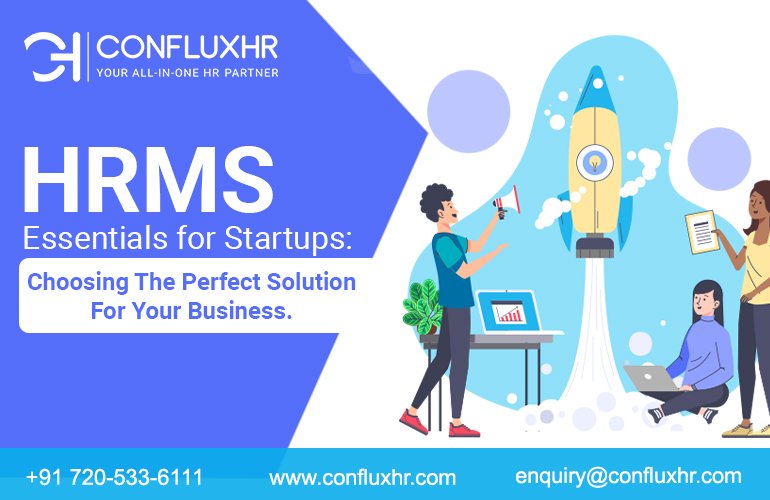Introduction:
As a startup, selecting the right Human Resource Management System (HRMS) is crucial for effectively managing your workforce and driving organizational success. However, with numerous options available in the market, finding the perfect fit can be challenging. This blog will provide valuable insights into choosing the right HRMS for your startup by highlighting key considerations and best practices. Following these guidelines ensures that your HRMS aligns with your specific needs, promotes efficiency, and empowers your growing team.
Understanding Your Startup’s Needs:
Before diving into the selection process, it is essential to understand your startup’s unique HR requirements. Consider your company size, growth projections, desired functionalities, and budget. Assessing your specific needs will help you narrow your options and find an HRMS catering to your startup’s current and future needs.
Scalability and Flexibility:
As a startup, scalability is critical. Your chosen HRMS should have the ability to grow alongside your business. Look for a solution that offers scalability regarding user capacity, features, and storage. Additionally, flexibility is essential to accommodate the evolving needs of your startup. Ensure that the HRMS can adapt to changes, integrate with other business systems, and allow for customization to meet your unique requirements.
User-Friendly Interface:
A user-friendly interface is vital for seamlessly adopting and efficiently utilizing your HRMS. Your startup’s employees should be able to navigate the system easily, perform tasks intuitively, and access the information they need without extensive training. Consider the HRMS’s user experience and interface design to ensure it aligns with your startup’s culture and promotes user adoption.
Integration Capabilities:
Integration with other business systems is crucial for streamlined operations and data consistency. Assess the HRMS’s integration capabilities with payroll software, accounting systems, and other relevant tools used in your startup. Seamless integration eliminates manual data transfers, reduces errors, and enhances productivity by enabling data flow across different platforms.
Data Security and Compliance:
As a startup, safeguarding sensitive employee data and ensuring compliance with data protection regulations is paramount. Evaluate the HRMS’s security measures, data encryption protocols, access controls, and disaster recovery capabilities. Additionally, verify that the HRMS complies with relevant privacy laws and industry standards to protect your startup and employees’ information.
Support and Training:
Implementing an HRMS requires support and training to ensure successful adoption and maximum utilization. Evaluate the support options the HRMS vendor provides, such as documentation, user guides, and customer service availability. Additionally, inquire about training resources and whether the vendor offers onboarding assistance to help your startup’s HR team and employees transition smoothly to the new system.
Continuous Updates and Enhancements:
An HRMS is a long-term investment, and it should evolve alongside your startup’s needs and advancements in HR technology. Research the HRMS vendor’s track record of providing regular updates, enhancements, and new features. This ensures that your startup remains equipped with the latest HR tools and capabilities to drive efficiency and stay competitive.
Conclusion:
Selecting the right HRMS is crucial for startups to manage their workforce and support growth effectively. You can make an informed decision by considering factors such as scalability, flexibility, user-friendliness, integration capabilities, data security, support, and continuous updates. A well-chosen HRMS empowers startups by streamlining HR processes, enhancing efficiency, and enabling strategic people management. Invest time and effort in selecting the right HRMS, and your startup will reap the benefits of streamlined HR operations and a productive workforce.


